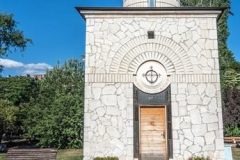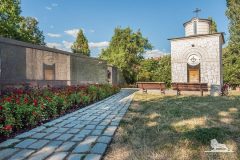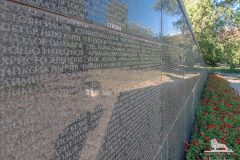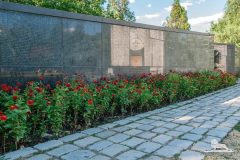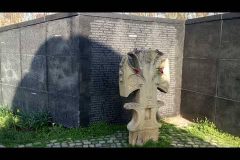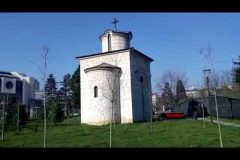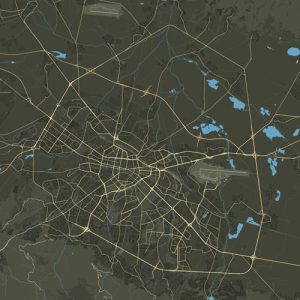On December 7, 1994, the Metropolitan Municipal Council took the decision to erect a memorial commemorating the victims of communism in Bulgaria during the period spanning the establishment of the Bulgarian Communist Party in 1919 to the ousting of Todor Zhivkov from power in 1989. This memorial complex is dedicated to all those who suffered at the hands of the Bulgarian Communist Party (BKP), encompassing victims of left-wing extremist acts, individuals executed without trial, and thousands sent to camps or subjected to resettlement, persecution, and repression.
Situated in the eastern section of the park in front of the National Palace of Culture (NPC), the memorial complex comprises three distinct elements, each impactful on its own, yet collectively creating a place of profound memory. The first element is a 58-meter-long memorial wall constructed of black granite, bearing the names of 7,526 victims of communism in Bulgaria.
In front of the central portion of the Memorial Wall, an ancient Christian votive cross is embedded, serving as a symbolic tombstone. Adjacent to this is a small Orthodox chapel, crafted from white stone, dedicated to all Bulgarian martyrs, a poignant reminder of the suffering endured by the victims and their deep love for Bulgaria and its people. The memorial is positioned next to a modest hill, seamlessly integrated into the overall composition, symbolizing a burial mound for all victims of communism. Many of those killed were interred in unmarked graves, their final resting places unknown to their families. This design preserves the memory of the fallen, offering them the respect they rightfully deserve.

